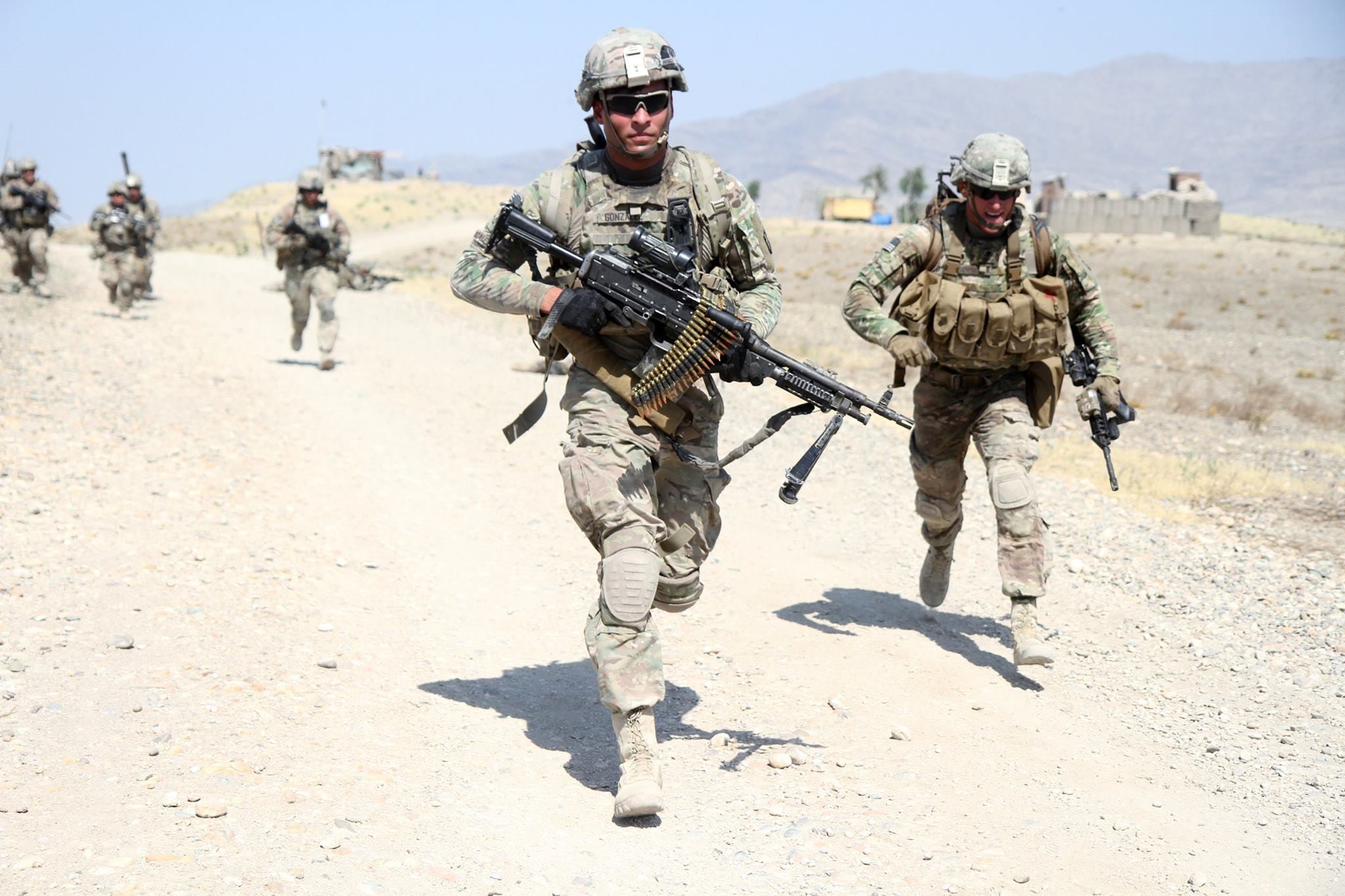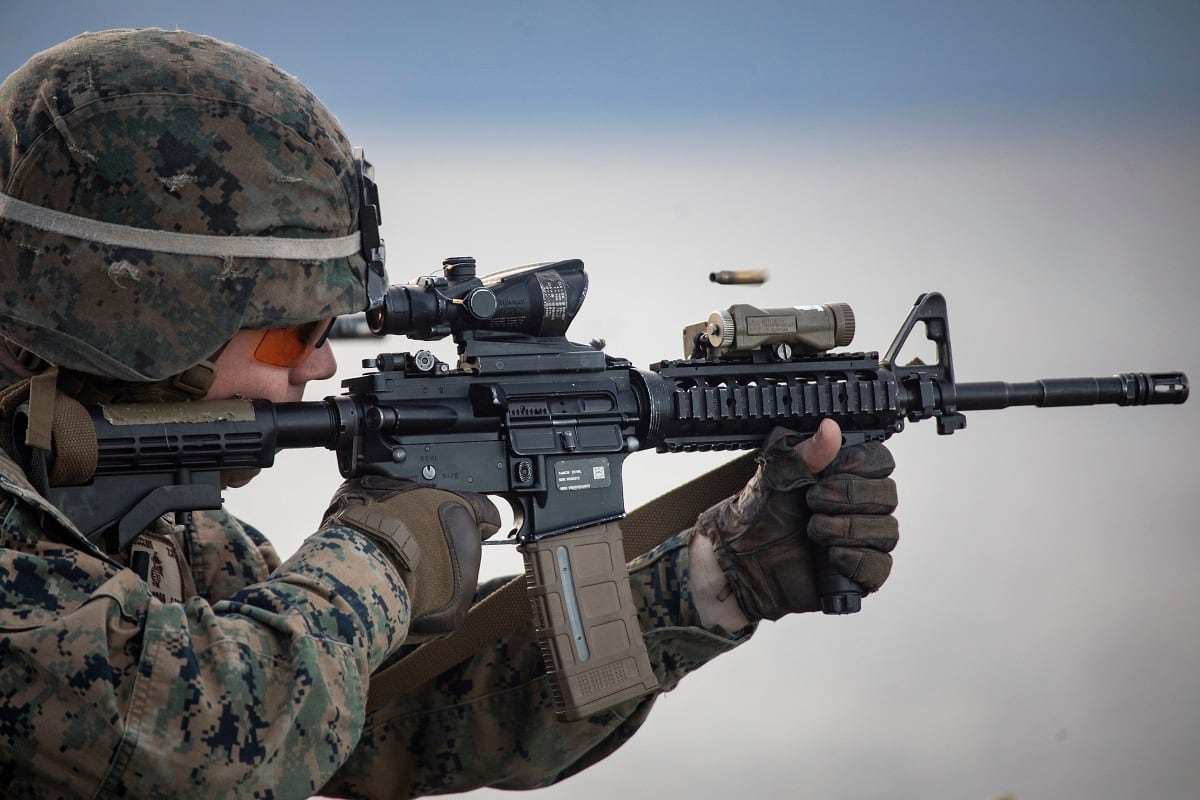Army officials have released a detailed request for prototypes of the planned replacements for both the M16/M4 and M249 Squad Automatic Weapons. And a battery is included.
The “prototype opportunity notice” on the government business website fedbizopps.gov offers three companies the chance to build the prototypes under a lengthy list of requirements and testing evaluations in the coming years.
While an Army program it has been closely watched and involved feedback and participants from both the special operations forces community and Marine Corps.
The Next Generation Squad Weapon program has evolved in recent years, honing down to two variants, the NGSW-Automatic Rifle, or SAW replacement, and the rifle/carbine replacement, NGSW-Rifle. Both will be chambered in 6.8mm, a new intermediate caliber not currently in the general purpose forces.
RELATED

An existing prototype competition for the NGSW-AR is set to have test fires this summer.
But once information is gathered from those tests, which involve four companies, that program will end and the combined NGSW-AR and NGSW-R program will continue with the selection of three companies to build those prototypes and supply a variety of ammunition for testing.
Those companies have until May 30 to submit their samples. Army officials are expected to select the three by the end of the summer.
Each company will need to deliver 53 NGSW-R, 43 NGSW-AR, and 845,000 rounds of ammunition. And that ammo may not look like what soldiers currently carry.
With pressure on all sides to lighten the dismounted soldier load, Army officials are open to accepting polymer casings, traditional brass, cased-telescoped ammunition or other hybrids that produce the necessary terminal performance while also reducing weight.
They will have 27 months to get the prototype ready. That timeline will include “soldier touch points.”
Those will include likely multiple squads assessing mobility, user acceptance, control and suitability and effectiveness for combat operations.
The scheduling means that the Army could have a weapon to down select, further develop and begin limited fielding by as soon as 2021.
Once selections are completed, the winning company may be asked to build up to 250,000 weapons and supply up to 150 million rounds of ammo.
Much of what’s being asked for is similar to what’s on current small arms and machine guns such as ambidextrous controls, flash hider, removable suppressor and rails for attaching accessories.

What’s slightly different is the Army wants both battery and non-battery versions to power an advanced fire control system that is providing much of the “leap-ahead” tech that the Army hopes will make shooters more lethal.
The battery submission needs to work with both rechargeable and non-rechargeable batteries that are integrated into the rifle system. The battery weight will not be included in overall weapon weight, though.
Officials want the submission to have new fire control capabilities built into one device — a laser range finder, ballistic computer, atmospheric sensor suite and disturbed reticle.
The system will give shooters an in-scope digital overlay that produces an adjusted aim-point for the weapon/ammo combination, according to a separate Army posting on the Squad Fire Control system for the NGSW.
And all of those features need to fit within a package that weighs no more than 2 pounds.
Those capabilities are only the first increment of the fire controls. In the not too distant future, the Army wants to incorporate all of those marksmanship items into its night vision, heads-up display technologies and include squad location and biometric info into the same screen on a device the size of a pair of ruggedized sunglasses.
Todd South has written about crime, courts, government and the military for multiple publications since 2004 and was named a 2014 Pulitzer finalist for a co-written project on witness intimidation. Todd is a Marine veteran of the Iraq War.




